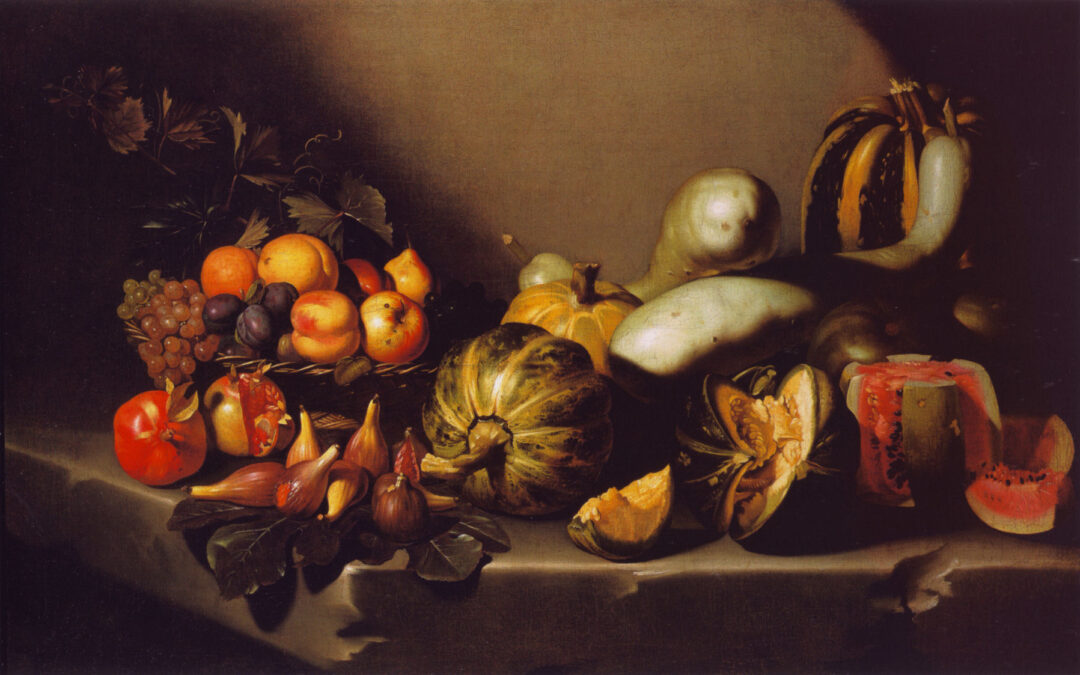Granite’s theme for the 2021-2022 academic year is “Stories Nourish the Soul.” As Christians, Scripture is the first story that feeds our souls and informs all other narratives. My 7th grade class studied Job in Omnibus I last autumn. During Job’s defense in the middle of the book, he is proclaiming his innocence and how he has tried to honor God with his life. He says, “I have esteemed the words of his mouth more than my necessary food” (Job 23:12 KJV). God’s Word is vital to our soul’s ability to flourish, just as food is necessary to the body. We see a more shocking picture of this idea in Ezekiel when God commands His prophet to eat a book that God gives him (Ezekiel 2:9-3:3). This example demonstrates a powerful image of digesting God’s Word – tasting it, internalizing it, and having it strengthen the reader.[1]
Some texts are harder to digest than others. As a historian, my area of expertise is in true stories of actual people, in all their creativity, courage, and sacrifice. We see models of virtue to emulate and cautionary tales of vice to avoid in many stories. Aristotle postulated that virtue was the golden mean between deficiency and excess. For example, courage is the proper demonstration of fortitude between cowardice and rashness.[2] We are still telling the stories of Horatius at the bridge, the 300 Spartans at Thermopylae, and the Royal Air Force during the Battle of Britain. We admire their bravery in the face of overwhelming odds. We recognize Cincinnatus and George Washington for their humility in relinquishing power after a victorious fight. These stories are fortifying and sweet to taste.
Yet, every age also has its revolting examples of the depths of depravity – infanticide, slavery, hubris, and every kind of abuse towards those who bear the imago Dei. While these stories are rightly bitter, we cannot have a balanced understanding of humanity or the past without them. We see ourselves in the best and worst of our ancestors. We must remember the atrocities of the past as we seek to love our neighbors in the present.
However, reading is not for strictly utilitarian goals or in looking for a moral lesson in every paragraph. Stories are rightly enjoyable for their own sake – for the sheer enjoyment and beauty of the words, for an escape to another time or magical place, or to take an imaginary walk in someone else’s shoes. Stories can grow our empathy for our fellow image bearers. Reading stories for leisure and dwelling in their beauty are restorative, too.
One of the hallmarks of classical education is reading the Great Books of the past. Our scholars are presented with a feast of stories every year, which is only a portion of a much larger banquet that should last a lifetime. For with every story we read, we see echoes of God’s grand story: creation, fall, redemption, and the coming restoration. We marvel at the world building of fantasy authors. Some stories primarily serve to remind us of the brokenness of the world. Sacrificial redemption narratives remind us of Christ, while other stories awaken our longings for justice and the world to be set right again at last.
We are all welcome to gather at this table. Jesus invited the disciples to “Come and dine” with Him after the resurrection (John 21:12, KJV). We are abundantly blessed with ample opportunities to commune with God and His many sub-creators in the Great Conversation.
[1] Discernment is vital. Job 12:11 “Does not the ear test words as the palate tastes food?” (ESV) If it tastes like poison, spit it out!
[2] Karen Swallow Prior, On Reading Well: Finding the Good Life through Great Books (Grand Rapids: Brazos Press, 2018), 29.


